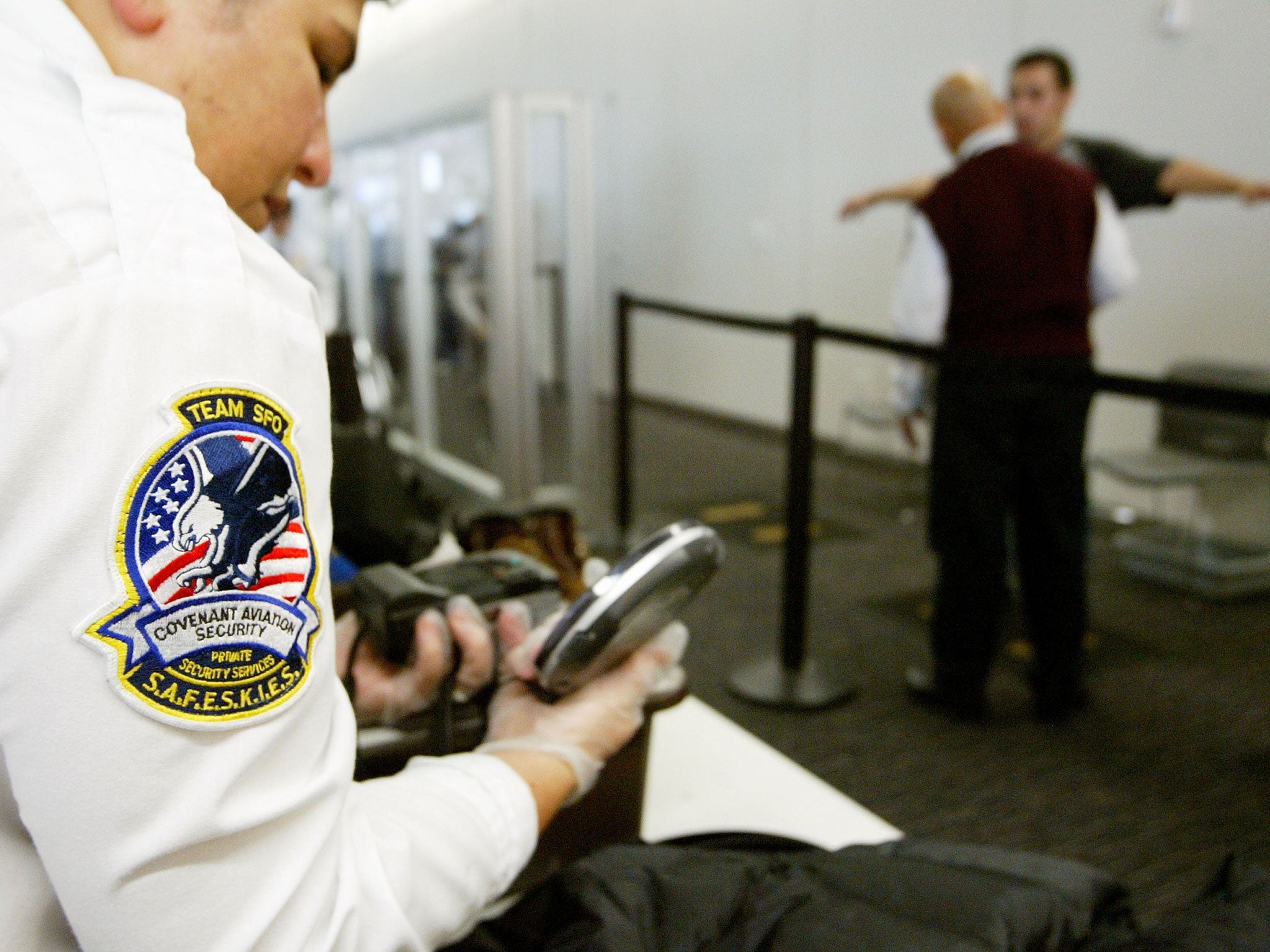US Homeland Security crackdown adds to cabin baggage confusion for transatlantic flight passengers
British Airways initially warned that travellers with non-functioning devices would be barred from the plane

Your support helps us to tell the story
From reproductive rights to climate change to Big Tech, The Independent is on the ground when the story is developing. Whether it's investigating the financials of Elon Musk's pro-Trump PAC or producing our latest documentary, 'The A Word', which shines a light on the American women fighting for reproductive rights, we know how important it is to parse out the facts from the messaging.
At such a critical moment in US history, we need reporters on the ground. Your donation allows us to keep sending journalists to speak to both sides of the story.
The Independent is trusted by Americans across the entire political spectrum. And unlike many other quality news outlets, we choose not to lock Americans out of our reporting and analysis with paywalls. We believe quality journalism should be available to everyone, paid for by those who can afford it.
Your support makes all the difference.Passengers with transatlantic flights on several airlines face confusion over new rules on electronic equipment.
The US Department of Homeland Security insists that passengers boarding America-bound jets in the UK have all their electronic equipment checked, and specifies that devices that cannot be powered up must not travel with the passenger. But confusion reigns about what happens to passengers carrying electronic gear with flat batteries.
The crackdown follows the apparent detection of another plot to down an flight to the US, this time using explosives smuggled aboard hidden in a laptop, tablet computer or smartphone.
Later, that policy softened to: “The device will not be allowed to travel on your planned service.”
Two of the leading US airlines have refused to answer questions from The Independent about how the new rules are being enforced.
A spokeswoman for American Airlines said: “We have no comment to make on the enhanced security measures, American has a long-standing policy of not saying anything when it relates to security.”
And a United Airlines spokeswoman said: “We work closely with federal officials on security matters, but we are not able to discuss the details of those efforts.”
Only Virgin Atlantic has a clear policy for assisting electrically challenged passengers. A spokeswoman told The Independent: “Customers can leave a device with the airline at the airport but the customer will be responsible for all costs to have it returned to them.
"We will give the passengers a receipt which details how to get their items back and the items will be looked after by G4S who will log all items and store them for the passenger. Passengers can arrange collection on their return.”
If a passenger cannot power up their device and chooses not to fly, Virgin will rebook them to the next available flight free of charge in the same cabin of service.
The airline will not, though, pay for overnight hotel stays. Virgin also says: “Passengers who have not commenced any part of their journey can claim a refund.”
Join our commenting forum
Join thought-provoking conversations, follow other Independent readers and see their replies
Comments